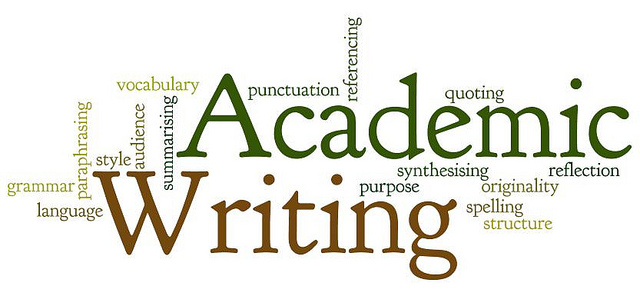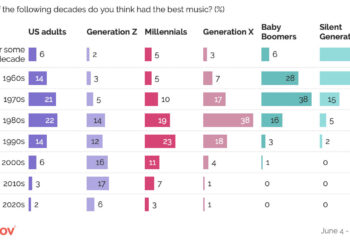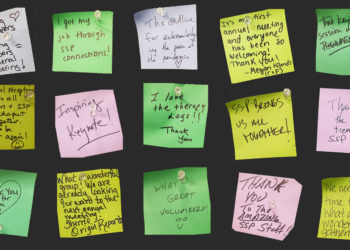 Last fall, in an interesting but weirdly disjointed op ed piece titled “The New Economy of Letters,” Harvard professor and New Yorker staff writer Jill Lepore meditated on the relationship between intellectuals and the public, a relationship that she feels is “more vexed than ever.” She sees multiple reasons for this, including both persistent sexism in the academy and the equally persistent refusal of academics to write prose that is worth reading. She goes on to suggest that the long-term outlook for university presses is less than bright.
Last fall, in an interesting but weirdly disjointed op ed piece titled “The New Economy of Letters,” Harvard professor and New Yorker staff writer Jill Lepore meditated on the relationship between intellectuals and the public, a relationship that she feels is “more vexed than ever.” She sees multiple reasons for this, including both persistent sexism in the academy and the equally persistent refusal of academics to write prose that is worth reading. She goes on to suggest that the long-term outlook for university presses is less than bright.
Several of her paragraphs are worth quoting in full. Here’s one of them:
One reason journalists write well is that journalists write for money: They write for readers. Historically, under the system of scholarly publishing—academic journals and university presses—scholars write for nothing. They have been able to afford to do this because they are paid salaries by the universities that employ them… And, while academic journals and university presses like to have readers who will pay for what they publish, they have been able to do without them; their publications have been subsidized by the universities that house them. University publishing has suited both scholars who need to publish and presses whose mission is to publish them. It has not rewarded clarity or beauty or timeliness, and it has not made a priority of satisfying readers or earning profits because it was not designed to do any of these things: It was designed to advance scholarship.
To most of which all I can say is “Yup.” While I always push back at the cavalier assertion that scholars write “for nothing”—on the contrary, academic writers are most certainly paid to write—to her credit, Lepore clarifies that point here. (On the other hand, society publishers may be surprised to learn that they “have been able to do without” paying readers.)
Things then start to go subtly downhill, however. In the next paragraph, Lepore goes on to make an interesting blend of important and questionable points about the usefulness of scholarly writing and publishers:
This set of arrangements has produced a great, heaping mountain of exquisite knowledge surrounded by a vast moat of dreadful prose. Whether the mountain is higher than the moat is wide has been much debated but may not matter any longer: This era is nearly over. Much of what scholars write is and should be written for other scholars: An audience of specialists is often exactly the right audience needed for the fullest and most sophisticated exchange of ideas. But in the digital age, those exchanges can be made through forms of publication that no longer requires [sic] publishers.
“Exquisite knowledge”? Check. “Dreadful prose”? No question. “Forms of publication that no longer (require) publishers”? Hmmm. Let’s save that argument for another time.
From this point forward in the piece, Lepore’s assertions start getting a bit more debatable. I suppose, for example, that it’s very possible that at least some university trustees are commanding university presses to come up with “innovation agendas” and “big ideas” and “branding visions,” but I can say for certain that such is not the case at my own institution. I don’t think I’ve heard much complaint along these lines from my colleagues in similar situations, either—not that I’ve polled them systematically. It would be interesting to hear from Scholarly Kitchen readers who run or work for university presses whether the expectations of their higher-ups are being laid out in such terms.
I also wonder whether it is in fact true that “most of what academics produce can be found, by anyone who wants to find it, by searching Google.” Certainly formal academic publications can almost always be “found” in the sense that citations to them can be located—but that’s not the same thing as saying that they can be read. Many can; many cannot, except by those willing and able to pay for access. But more troubling is this paragraph:
Every day, more scholars are writing more words for less money than ever before: They are self-publishing and tweeting and blogging and MOOC-ing. Much of this is all to the good, especially insofar as it disseminates knowledge. But publicity and public-spiritedness are not one and the same, and when publicity, for its own sake, is taken for a measure of worth—some tenure evaluations are conducted by counting “hits”—attention replaces citation as the academic author’s compensation. One trouble here is: Peer review may reward opacity, but a search engine rewards nothing so much as outrageousness.
Notice the rhetorical progression in this paragraph: first, Lepore says that scholars are creating free online content like never before, which she again characterizes as more-or-less unpaid writing. Then she asserts that “some tenure evaluations are conducted by counting ‘hits'”—a statement for which she provides no support. (Certainly there may be some academic institutions that include such informal measures among the criteria used in faculty evaluations, though I doubt very much that the success of anyone’s tenure bid is substantially determined by “counting ‘hits'”). She then proceeds to knock down a straw-man argument constructed on the basis of that unsupported assertion: that “publicity, for its own sake,” is now being taken as a serious measure of academic worth. Again, there may well be people who believe that, but I can’t think of any academic institution that makes tenure decisions based on “publicity, for its own sake.” (Please correct me, anyone who is aware of such examples.)
Search engine companies don’t typically share their ranking algorithms, so it’s hard to say whether Lepore is correct in saying that “a search engine rewards nothing so much as outrageousness.” For the sake of argument, let’s say that this is true. The problem for her argument, though, is that virtually any standard citation metric rewards outrageousness, as is pointed out repeatedly by those who oppose the Impact Factor: a high citation rate may mean that your journal publishes lots of groundbreaking articles of high quality, but it also could mean that you simply publish lots of articles on controversial topics, or even that you publish articles that are regularly cited by authors in other journals as examples of lousy scholarship or poor science.
Lepore ends her essay by observing that “in an online culture that values opinion and personality over research and reporting, academics keen to reach readers generally have the best shot at success if they are willing to offer cavalier and often unsubstantiated opinions, promote their own work, and even expose their lives to public view.” How the “online culture” of the present differs from the print culture of the past in this regard is unclear—and this point seems particularly important in light of the call with which she finishes her essay:
Above all, university presses (should) take as their charge countering some of the Internet-era forces that diminish the work of some of the academy’s most exciting and important thinkers by finding, cultivating, and decisively promoting the contributions of those scholars who happen to hold a passionate sense of accountability to both the university and the public.
It seems to me that Lepore is confusing the rewarding of popular writing with the suppression of academic writing. (For some insightful commentary around this general issue, see Joe Esposito’s excellent posting from last month on public and academic intellectuals.) But the more important question, I think, is what it might look like for university presses to “(counter)… the Internet-era forces that diminish the work of some of the academy’s most exciting and important thinkers.” The forces she has identified include sexism (“few female intellectuals,” she says, are willing to “offer cavalier and often unsubstantiated opinions” etc.); opaque and leaden academic writing; the seeking and rewarding of “publicity for its own sake”; and a generally noisy atmosphere of public discourse that silences “the modest, the untenured, and the politically moderate.”
What say you, university presses? Do you agree that these challenges are real—and are they a set of challenges you’d be willing and ready to pick up and run with?
Discussion
3 Thoughts on "Meet the New Economy of Letters, Same As the Old Economy of Letters"
Lepore has defensible ideas on how journalists **should** be rewarded for their work. That this reward system is slipping into something entirely different seems to be at the root of her discontent. She then projects her perception of the failings of this new order onto all academics and all of academia. This is where and why her argument gets a flat tire.
Academics don’t typically write for dollars but they also don’t write for nothing. There is a very sophisticated reward system at work in academia and it does elicit great effort. It is certainly not perfect but it isn’t bankrupt yet.
A blog may look like a giveaway. So, too, a presentation, lecture, webinar or workshop either given live or captured for perpetuity as a screencast or video. These “freebies” build reputation and inform one’s teaching, service and research. They sometimes distill into peer reviewed papers, books, monographs, etc.
No, academics are not paid by the word as novelists used to be (giving rise to purple prose) but their words do influence decisions such as promotion, tenure and grant awards and those decisions can bring significant rewards and deprivations.
One example of where a university did not place great value of writing quality is SMU, which closed its press, I believe, partly because it focused too much of its list on fiction writing, which presumably gave high priority to quality of writing. Another example that casts some doubt on Lepore’s argument is the perhaps apocryphal story about Hegel, who in his youth was a journalist writing clear prose but was advised by his academic colleagues, when he asked them how to succeed in academe, to write obscurely, presumably so that there would be legions of future scholars dedicated to interpreting his dense prose.
One problem I think we have in scholarly writing is the conflation of denseness and obscurity with conceptual depth. The conversation typically goes like this: someone (like Denis Dutton or Martha Nussbaum) accuses scholars of writing badly, and the response (from someone like Judith Butler) is “you just don’t have the intelligence and patience to deal with complex ideas.” But the reality, I think, is very often that there isn’t much conceptual complexity, much less originality, at work. What’s happening too often, I think, is that scholars are using dense and turgid writing to signal their seriousness, or (interpreting their intentions less charitably) to signal that they have bought into a prevailing mindset and therefore deserve to be accepted by their colleagues.


